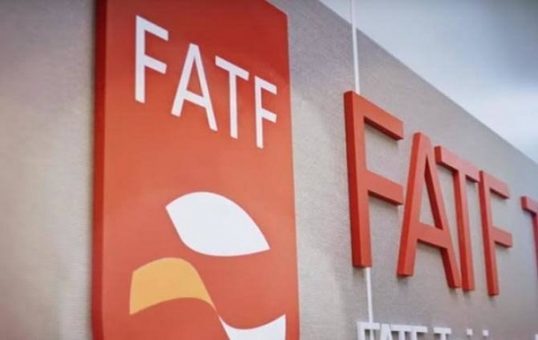Nigeria has officially been delisted from the Financial Action Task Force (FATF) “grey list” after successfully meeting all required standards under its Action Plan, a major milestone that strengthens confidence in the country’s anti-money-laundering (AML) and counter-terrorism-financing (CFT) framework.
The decision, announced during FATF’s October 2025 plenary in Paris, highlighted Nigeria’s improved inter-agency coordination, stronger institutional collaboration, and enhanced regulatory oversight as decisive factors for its removal.
Speaking on behalf of the Nigerian delegation, the Coordinating Minister of the Economy, Wale Edun, said the delisting represents not an endpoint but a foundation for sustained reform.
“Nigeria’s ambition was never limited to merely completing the Action Plan and exiting the grey list. Our focus has been on driving reforms and strengthening institutions to ensure Nigeria effectively counters money laundering and terrorist financing. For us, the Action Plan was not the ceiling, but the floor of our aspirations,” Edun stated.
In another statement, Edun described the development as “a vote of confidence in our economy and in the integrity of our monetary and financial systems,” noting that it sends a strong signal to investors and international partners that Nigeria’s institutions are robust, transparent, and globally trusted.
Nigeria had been placed on the FATF grey list in February 2023 following identified gaps in its AML/CFT framework. Since then, coordinated efforts across multiple agencies have delivered sweeping reforms, including: The enactment of the Money Laundering (Prevention and Prohibition) Act, 2022, and the Terrorism (Prevention and Prohibition) Act, 2022; the operationalisation of the Beneficial Ownership Register to enhance transparency around corporate and legal entities; the strengthening of supervisory frameworks for both financial institutions and designated non-financial businesses and professions (DNFBPs), and
enhanced intelligence-sharing and inter-agency cooperation involving the Nigerian Financial Intelligence Unit (NFIU), the Economic and Financial Crimes Commission (EFCC), and other regulatory bodies.
At the plenary, FATF acknowledged that Nigeria had “demonstrated strong political commitment to fight financial crimes,” upgrading the country’s status from “partially compliant” to “largely compliant” in key technical areas.
The development marks a major reputational win for Nigeria, paving the way for stronger international financial relations and greater investor confidence in its reform-driven economy.

